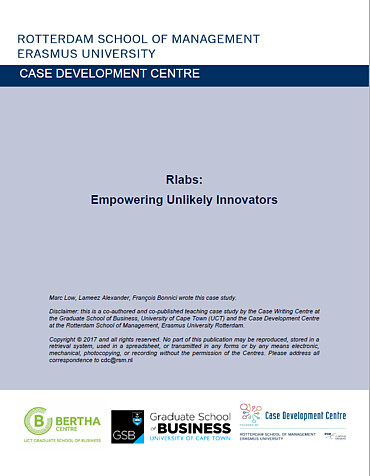Abstract
The Reconstructed Living Labs (RLabs) is a non-profit social entrepreneurship venture that uses technology to rehabilitate, educate, and re-integrate recovering drug addicts, ex-gang members, and single mothers in the Bridgetown community. The case examines the operational, strategic and cultural choices that helped RLabs create and sustain a significant amount of innovation within an economically and socially disadvantaged community. Since its inception in 2007, the organisation has experienced rapid expansion but faced the problem in that it had to ensure sustainable growth without placing further strain on the organisation’s limited financial and human resources.
Objective
After reading and discussing the case, students should be able to: 1) assess the value and impact of leadership in a successful social venture; 2) analyse the impact of partners in terms of risk and strategy options for the venture; 3) understand the value of market insight and knowledge in terms of product success and addressing community issues; 4) debate the risks and opportunities associated with scaling a social venture – especially at pace; 5) comment on the concept of bricolage in the context of social ventures; and 6) debate the factors that have generated innovation at RLabs, and assess the risks, challenges and opportunities for the programme moving forward.
Citation Note
Based on field research; 10 pages.
Follow the 'handle' link to access the Case Study on RePub.
For EUR staff members: the Teaching Note is available on request, you can contact us at rsm.nl/cdc/contact/
For external users: follow the link to purchase the Case Study and the Teaching Note.
